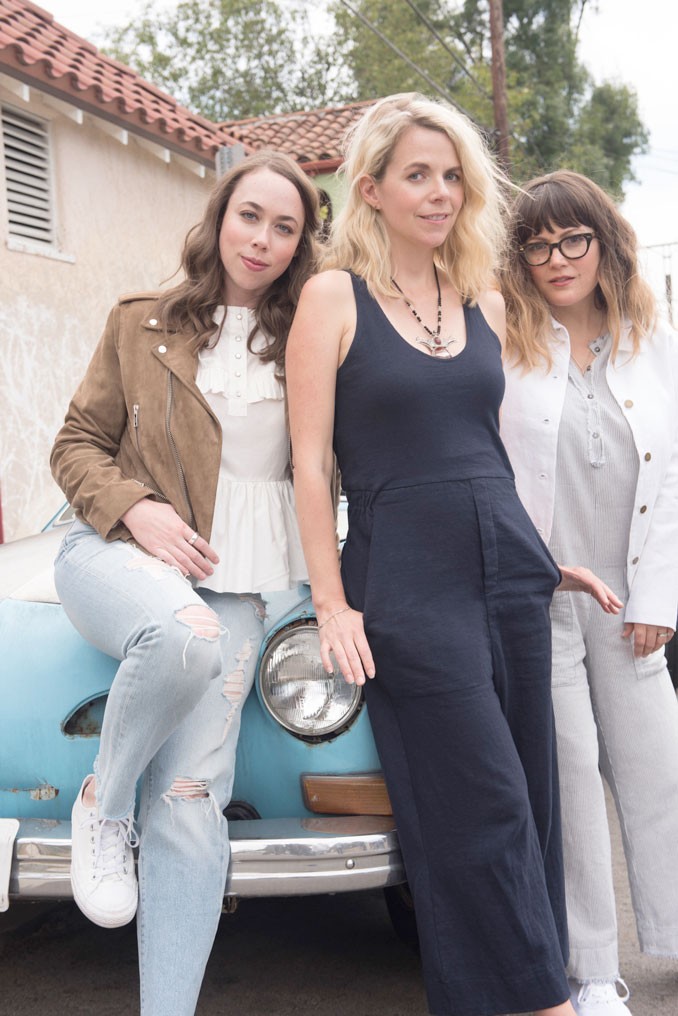Folk trio I’m With Her, who make their Sonoma County debut with a show on April 4 at the Luther Burbank Center for the Arts, are something of a folk supergroup, featuring Sara Watkins, Sarah Jarosz and Aoife O’Donovan.
Individually, these songwriters have formed seminal bands like Watkins’ Nickel Creek and O’Donovan’s Crooked Still, and their respective solo outputs have garnered international praise.
After crossing paths in the contemporary folk scene for many years, the three first shared a stage together at an impromptu performance in the summer of 2014.
“We’d all been friends and colleagues—that’s sort of a funny word to describe folk musicians—but we’ve known each other for many years,” says O’Donovan, who explains that the trio discovered a spark in their vocal blend at a workshop during the 2014 Telluride Bluegrass Festival in Colorado. “Later that night, we put together a short opening set for the Punch Brothers, and the next day we all said, ‘Wow, that was really special, should we take this one step further?'”
They did. For the last several years, I’m With Her, named after an early tour of the same title, have collaboratively shared their sparkling harmonies and stripped-down acoustic styling with audiences throughout the United States and Europe.
The band’s recently released debut album,
See You Around, is also a collaborative effort.
“It was so different from [my solo songwriting] and so rewarding,” says O’Donovan about making the new album. “With Sara and Sarah, when we decided we wanted to write the music all together, it was part of the idea that this was a band. We all have a joint ownership of the material.”
Co-produced by Ethan Johns (Ryan Adams, Paul McCartney) and recorded live at Peter Gabriel’s Real World Studios in Bath, England, See You Around comprises 11 originals and a never-before-released Gillian Welch song, “Hundred Miles.”
Of course, the band pre-dates the #MeToo movement by several years, though O’Donovan says I’m With Her represents camaraderie in a folk scene that can feel like a boys club.
“We’re musicians first and foremost. We view ourselves as equals to one another and our
male peers,” O’Donovan says. “My goal is that it becomes a non-issue, that we are just a band, the same way a band with three men is a band and nobody’s calling them a dude band.”









